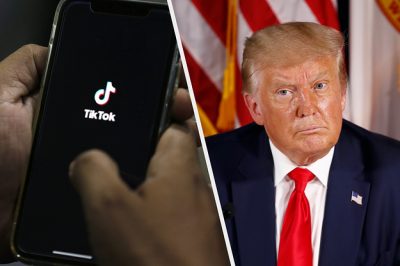Trump Targets TikTok Social Media Platform, Escalates Trade War Between the U.S. and China

U.S. President Donald Trump has issued an executive order that could ban TikTok from the U.S. if it is not purchased by an American company. On August 6, Trump’s executive order banned U.S. financial transactions with Chinese company ByteDance, owner of the TikTok app. The ban will take effect 45 days after the executive order was made.
According to Trump, if the app is not sold to an American company, it will be banned from the U.S. because it represents a so-called national security threat. Growing immensely popular all throughout the world during the coronavirus quarantine, the TikTok app has been downloaded more than a billion times around the globe, totalling 175 million downloads in the U.S. alone.
TikTok as a social media platform is distinct from other competitors because its short video content is fun, easy to consume and dynamic, popular especially with teenagers and young adults. Operated by the most valuable start-up in the world, ByteDance, TikTok adopts a market strategy based on not having an obvious Chinese connection. However, despite trying to detach itself from its Chinese roots, TikTok still faces mistrust around the world, and not from its consumers, but rather from the consumers governments.
After Trump consolidated Sinophobia in the U.S., which then spread throughout the Anglosphere, targeting TikTok as a Chinese spy mechanism was intensified. To counter this aggression, the company took steps such as hiring Kevin Mayer, a former Disney executive, to become CEO of TikTok, and it is rumored to be considering relocating the app outside of mainland China. But the strategy did not prevent the company from becoming the target of the Trump administration. The U.S. president gave TikTok a few weeks to sell its U.S. operations to an American company. Apparently, the buyer will be Microsoft.
The threat to ban the app if there is a no sales agreement with Microsoft by September was viewed with great suspicion in Chinese public opinion. The press in China has classified the measure as an attempt to steal Chinese technology.
Trump’s decision is in line with Washington’s recent stance on Beijing. The subsequent announcement that Trump expects the U.S. to receive a percentage of the possible sale of TikTok to an American company is a major escalation in the economic war between the U.S. and China. There is no precedent in recent U.S. history for such a requirement and rather it is a clear act of extortion.
The Trump administration justifies the move against TikTok, claiming there is a risk that data from U.S. users will be transferred to the Chinese government. A broad debate on privacy and data protection is necessary, but it needs to be guided by evidence and not just suspicion. The U.S. is yet to provide any tangible evidence that TikTok data ends up in the hands of the Chinese government. It is also problematic that Chinese companies are subjected to such scrutiny while Western companies are spared the same level of rigor, both on the part of governments and the general public.
Trump is in the middle of an election campaign and wants to attract a portion of the electorate with anti-China sentiment. The president is also reacting to a movement supposedly orchestrated by users of the app, which sabotaged Trump’s first campaign rally in June by registering most of the seats at the rally but did not attend it. The Trump administration is concerned with TikTok’s influence in the public debate and the humiliation it made on Trump’s rally, and Trump is now seeking revenge.
A Chinese retaliation is possible and will damage the business environment for both countries. Chinese Foreign Ministry spokesman Wang Wenbing warned that Washington’s move could open a “pandora’s box.” This unprecedented action by Trump could open the door for similar measures to be taken against U.S. companies in other countries.
However, it is important to remember that China’s ability to retaliate is not the same as the U.S. as the North American country has a bigger economy, technological superiority and more influence over others countries – for now at least. In addition, many of the American companies similar to ByteDance, such as Facebook and Google, already have a very limited or even non-existent presence in China, which would also make it difficult for Beijing to respond proportionately.
Initiatives against other companies like Huawei, suggest that Washington is engaged in a broader battle against Chinese technology companies. Technology companies will increasingly be used in containment strategies in the China-U.S. dispute. ByteDance said it would sue the Trump administration for accusing the company without evidence and failing to guarantee the right of defense. Effectively, this issue over TikTok is far from over for Trump, especially since it still remains a threat to his election campaign.
*
Note to readers: please click the share buttons above or below. Forward this article to your email lists. Crosspost on your blog site, internet forums. etc.
This article was originally published on InfoBrics.
Paul Antonopoulos is an independent geopolitical analyst.
Featured image is from InfoBrics

